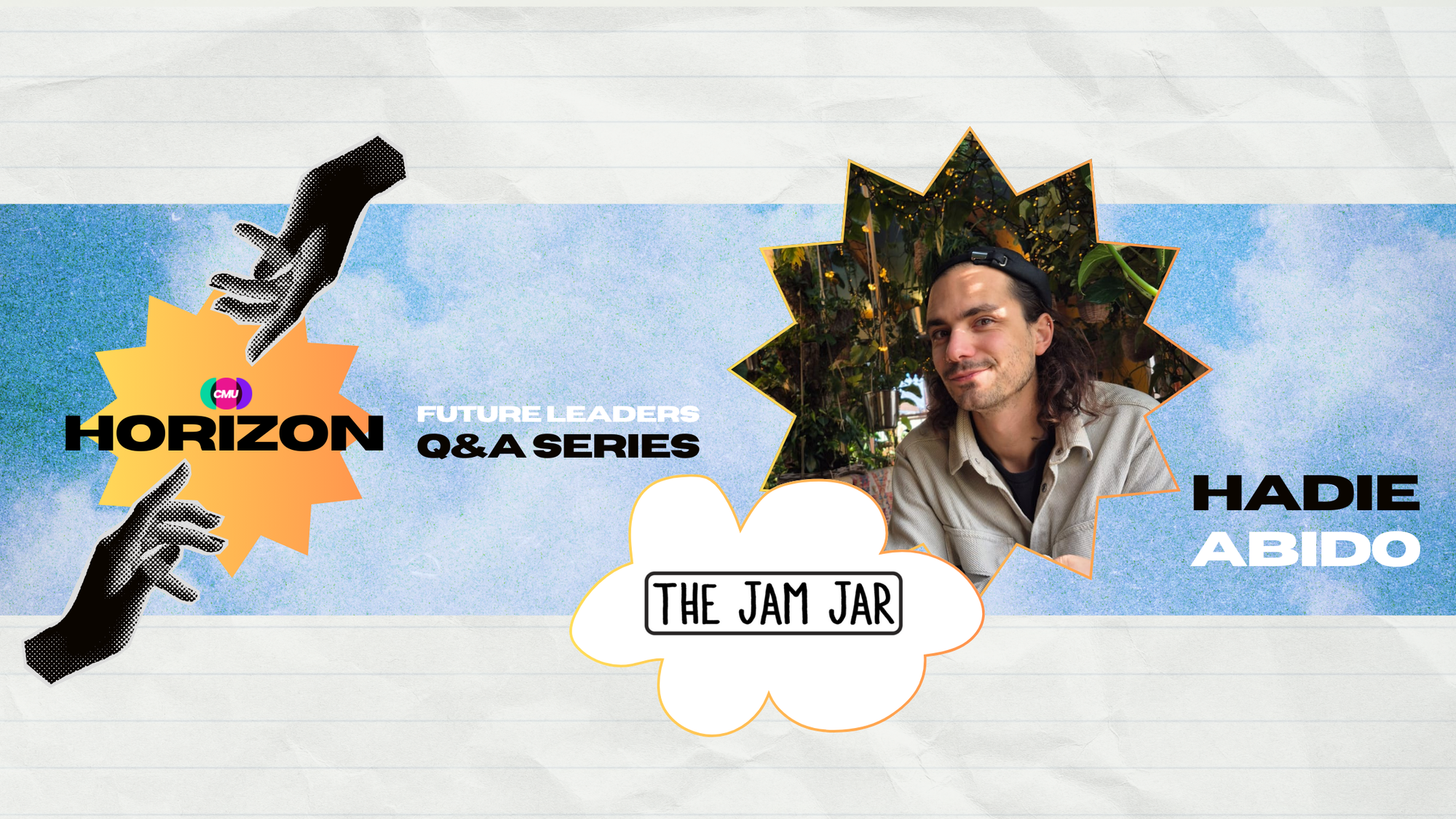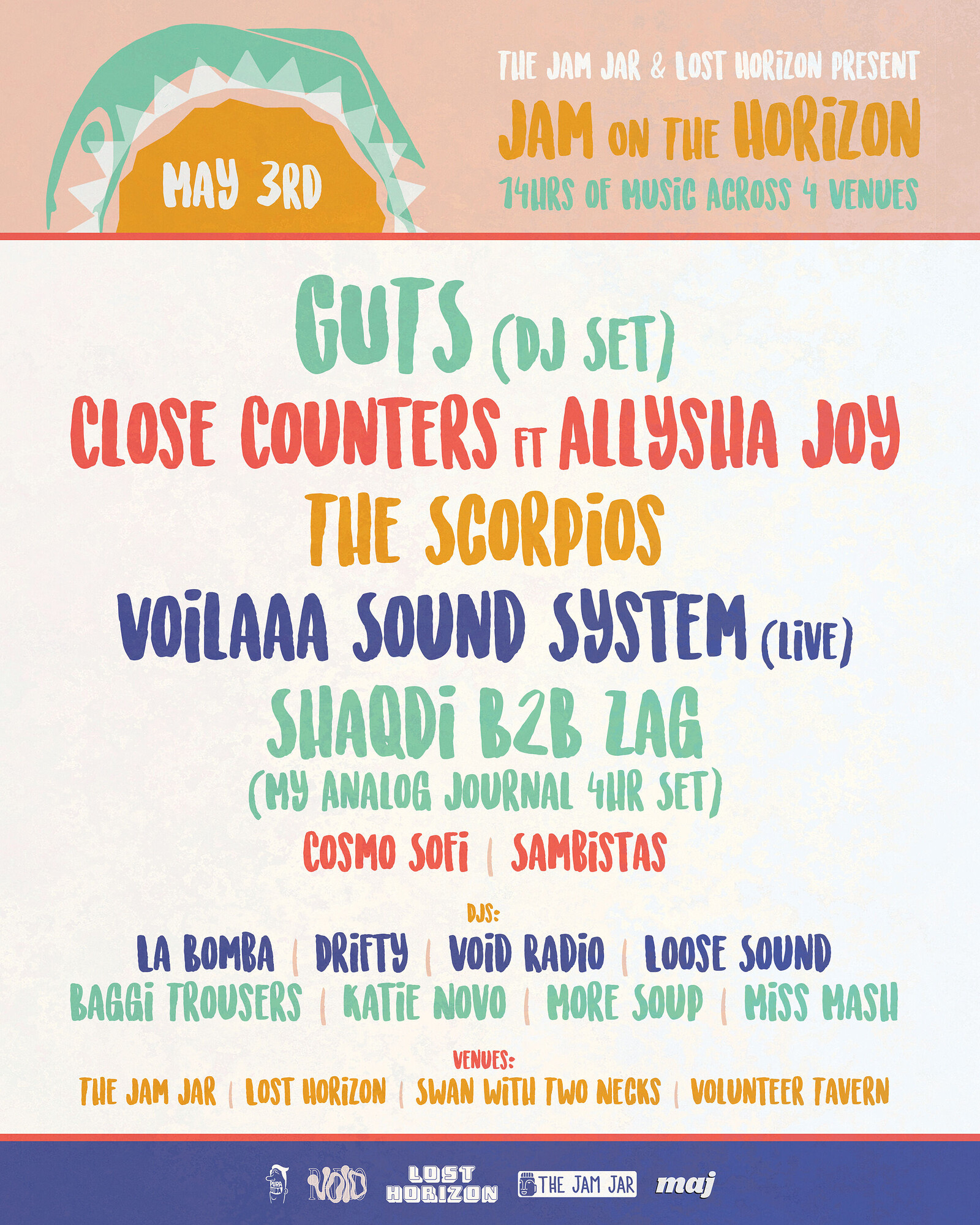As part of our Horizon Future Leaders series of interviews, we are connecting with the music industry’s next generation of leaders to gather candid advice and insights into their career journeys.

This week we caught up with Hadie Abido, co-founder and director of The Jam Jar in Bristol, an independent grassroots music venue.
Hadie is a grassroots champion, with a wealth of experience that spans from working behind the scenes at festivals to co-founding The Jam Jar. In a climate where independent venues face mounting challenges to stay afloat, Hadie offers valuable advice on navigating the industry and staying true to your vision.
From fostering your own scene to building a supportive network, Hadie’s journey shows that dedication and adaptability are key to thriving in a rapidly changing live music industry.
Read the full Q&A with Hadie below 👇
What’s your current role in the music industry?
I’m co-founder and director of The Jam Jar in Bristol, an independent grassroots music venue.
What does your general day to day look like?
A standard day for me doesn’t really exist, but where possible I try to make sure our team is supported in the day to day running of the venue, whilst carving out some time to look to the horizon and open up new opportunities in the future.
As I manage my own time, I try to organise meetings in the morning to give me somewhere to be at a set time, I find my days flow better that way.The day-to-day stuff is generally looking at what worked and what didn’t, catching up with the team and making sure we’re all on the same page. Coupled with solving any problems that may have arisen overnight.I’m always looking to open up conversations with new partners, promoters, agents and various other industry people. I generally find time to burn through my inbox as the working day draws to a close.
What steps did you take early in your career to gain experience and build skills to get you where you are now?
I realised very early on that I learn by working alongside others. By hearing about the mistakes others have made and the solutions they found I’ve been able to avoid making them myself. This isn’t to say I don’t make mistakes! It is important to try things out when you can and learn from your experiences. Particularly with promoting shows, you need to find your audience. Exploring a new kind of music might require taking a few knocks before people discover what it is you’re doing.
When starting out I was told that you need to create your own scene and I think that is something we have managed to do fairly well at The Jam Jar.
What opportunities did you explore early on that were particularly valuable?
In order to get by I took every work opportunity I could. That meant working in other venues, for big club nights, at festivals, often in roles I wasn’t necessarily qualified for.
These roles were generally centered around decor, site crew and carpentry, eventually I migrated into a production office. Years later I found myself working production for the likes of Arcadia’s Glastonbury show and in Boomtown’s theatrical production team. Now I still regularly work alongside my peers from those early days. Everyone who kept on pushing their thing is now doing really well and is an expert in their own field. I’m lucky enough to be part of an amazing network of people who were in the same boat as me five to ten years ago. I know that almost any problem I encounter now can be overcome by picking up the phone.
Has the opportunity landscape changed since then?
Broadly speaking, the opportunities to graft your way into exciting jobs still exist. But it does feel like the festival industry is going through a period of consolidation. If we flip back to talking about founding a music venue, I’d bluntly say yes, the landscape has changed. We were so lucky to find a city centre location that just about worked for what we wanted to do.
I think central real estate in any city with a great music scene is becoming scarcer every day. To do what we did without sponsorship, investment etc – and remaining true to our own values whilst doing so – would probably be even harder today.
Are there any specific internships, projects, or initiatives that you would recommend to newcomers looking to pursue a similar role?
I’d say if you want to work in grassroots music the best thing you can start doing is promoting your own shows. Get a crew together, have fun with it and make something happen that you would want to go to! If you are serious about wanting to start your own project, then all it takes is commitment and a good group of people around you. There are no shortcuts, you need to put the work in and keep on going.
What advice do you have for building and leveraging a professional network in the music industry?
Networking events can feel kind of scary at the outset, but there is no substitute for the connections you will make. Events such as Venues Day, The Great Escape, AIF Festival Congress, Sound City etc are all teeming with people who are there to amplify what you are doing. Two full years after my first networking event I saved almost £10,000 on a new lighting rig through someone that I almost walked right past. Make sure you stop and chat to people, their knowledge and expertise can feed into your ideas down the line, and vice versa!
How has the evolving digital landscape impacted your role, and where do you focus to stay ahead?
Running a venue has changed almost entirely in the last ten years. When we started out people still bought physical tickets in shops around town, cash was king, meetings were in person and posters/flyers were our main promo. Now we need to constantly be picking up new tools, working with ticketing companies to analyse data and trends, refining our ads and targeting new audiences. Now we are enjoying the benefits of flexible remote working, AI note takers and comprehensive show data. But our main challenge is to harness the power of these things, whilst staying true to our identity as a small independent.
That means putting out authentic and interesting content that engages our audiences, reminds them that we have something different to offer. To belong to a local scene and programme new and exciting music, alongside legacy acts that built the foundations on which new artists stand.
What trends or changes do you see on the horizon for the music industry, and how can early career professionals prepare for them?
I think we are entering a really interesting period, where regulators are trying to catch up with streaming services. I expect we will see them chasing AI music creators shortly after.
I think how AI music creation will intersect with the live industry is not easy to predict, really we can only follow developments closely and change our strategies accordingly. What is very exciting for the grassroots music sector in the UK is the advent of a live music levy on arena and stadium shows. Similar to the French model, this would see £1 from every ticket sold at venues over a certain size be pumped into a fund to support grassroots music in the UK.
If implemented well, this could help us produce some extraordinary talent in the UK and cement our position as a world leader when it comes to producing household names.
What’s one piece of advice you wish someone had given you at the start of your career?
Find a few measurements of your success and regularly write down where you are at.
This could be social media following, tickets sold or monthly turnover. When you need to motivate yourself, look back at where you were at and where you are now.A second piece of advice would be that you won’t feel well rested after a day off if you don’t practice some self care.


